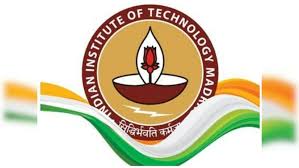Researchers from the Indian Institute of Technology (IIT) Madras and the National Aeronautics and Space Administration’s (NASA) Jet Propulsion Laboratory (JPL) have embarked on a groundbreaking partnership to investigate multi-drug-resistant pathogens aboard the International Space Station (ISS). This collaborative effort holds promise for enhancing astronaut health and addressing microbial challenges in both space and terrestrial environments.
Enterobacter Bugandensis Study
The focal point of this research initiative is the study of Enterobacter bugandensis, a prevalent nosocomial pathogen found on the ISS. By exploring genomic, functional, and metabolic adaptations in multidrug-resistant pathogens like E. bugandensis, scientists aim to deepen their understanding of microbial dynamics in space and evaluate their implications for astronaut well-being.
Key Findings and Applications
Unveiling Real-World Applications
The study’s findings have significant implications beyond the confines of space exploration. They pave the way for the development of targeted antimicrobial therapies, innovative strategies for managing microbial contamination in closed environments, and the advancement of systems biology methodologies for analyzing microbial behavior in extreme settings.
International Collaboration and Scientific Advancement
The collaborative efforts between IIT Madras and NASA’s JPL underscore the importance of international partnerships in driving scientific progress. This collaboration not only represents a significant stride in space exploration but also exemplifies global cooperation in addressing critical issues related to astronaut health and environmental microbiology. Published in the esteemed journal Microbiome, this study marks a pivotal advancement in understanding microbial dynamics in confined spaces like spacecraft.
Insights from the Experts
Karthik Raman on Microbial Growth
Karthik Raman, a professor at IIT Madras, sheds light on the intricate nature of microbial growth in challenging environments. According to Raman, such studies play a crucial role in unraveling the complex interactions underlying microbial survival in unique settings.
Kasthuri Venkateswaran on Microbial Behavior
Kasthuri Venkateswaran, representing JPL, NASA, emphasizes the significance of comprehending microbial behavior and adaptation in extreme environments. This research offers valuable insights into microbial community dynamics and the potential mechanisms of antimicrobial resistance within E. bugandensis strains.
In conclusion, the collaborative research efforts between IIT Madras and NASA’s JPL have yielded invaluable insights into the dynamics of multi-drug-resistant pathogens aboard the ISS. With its wide-ranging implications for astronaut health and Earth-based scenarios, this research stands as a testament to the power of international cooperation in advancing scientific knowledge.




